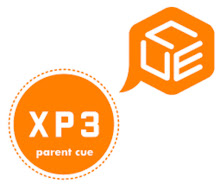We’re
Teaching This:
When we hear the word entourage, most of us think of celebrities walking the streets of Beverly Hills, barking orders at their “people”—people that work for them or just get paid to hang out with them. By definition, an entourage is a group of people attending or surrounding an important person. Even if we don’t feel important, most of us want at least a handful of people who like to hang around us—people who laugh at our jokes, go to the movies with us, and simply have our back. King David, his son Absalom, and his grandson Rehoboam were no different. As royals, each had an entourage and through their experiences we see that the choices we make with those around us can change everything.
When we hear the word entourage, most of us think of celebrities walking the streets of Beverly Hills, barking orders at their “people”—people that work for them or just get paid to hang out with them. By definition, an entourage is a group of people attending or surrounding an important person. Even if we don’t feel important, most of us want at least a handful of people who like to hang around us—people who laugh at our jokes, go to the movies with us, and simply have our back. King David, his son Absalom, and his grandson Rehoboam were no different. As royals, each had an entourage and through their experiences we see that the choices we make with those around us can change everything.
Think
About This:
A quick internet search reveals the worries many parents feel
when it comes to their teen’s friends. “How to spot a bully”. “How to spot a
bad influence”. “How to spot the wrong crowd”. There is plenty to worry about
when it comes to your child’s friends. But what if you have more influence than
you think? What if you were able to not only help your teen choose friends, but
to directly influence the life choices those friends make?More and more studies say you can.
A study published in the archives of Pediatric and Adolescent Medicine suggests that teens with friends who have strict parents are less likely to binge drink and make other poor life choices. (Read the study here.)
Think about that. The students in this study were most influenced by their friends’ parents, not just their friends. In fact, you probably don’t need a lot of research to know this. Have you ever heard someone say, “She is like a second mother to me”. Probably so. Many of us grew up with at least one set of friend’s parents who influenced us. Part of maturing is beginning to listen to multiple voices, multiple adult influences. As parents we have an incredible opportunity to speak into our own children’s lives by using our influence to guide their friends.
Having influence on your child’s friends doesn’t mean you have
to be the “cool one”. It doesn’t mean you have to host or allow parties, throw
caution to the wind, and be their best buddy. It also doesn’t mean you have to
legally adopt them or have them over every night of the week. Having influence
can be as simple as taking one step toward including a friend in your normal
family plans.
- Invite them in. Invite your teen’s friends to spend time at your house. You don’t have to do anything special or make a five star dinner. For a lot of students, the concept of a normal (even boring) family dinner is almost unimaginable. Simply being in a home with someone other than their own parents can offer students a different perspective on things like marriage, work, family, and decision-making. So don’t feel the need to put on a show or have the most fun house on the block. Just allow someone else to be a part of your family once in a while. You may have more impact than you think.
- Invest in them. Invest time and energy in your teen’s friends. Talk with them, ask questions, and listen. Teens are often more likely to open up to other teens’ parents than their own. Do you know how to fix a car or bake a cake? Can you fish, play tennis, or scrapbook? Offer to show them! Sometimes the best conversations take place while working on something else. Chances are they’ll appreciate the new skill and your own student is more likely to join in if their friends are involved.
Try
This:
Everyone wants their teen to be wise
and intentional when it comes to friends. And the best way to teach that skill
is to model it. Think about the friends your teen already spends time around.
How intentional are you about investing time in those people? Are you using
your influence to help that person in any way? Is there one teen you could invite to dinner,
to hang out, or to be helpful?
Get connected to a wider community of
parents at www.orangeparents.org.






